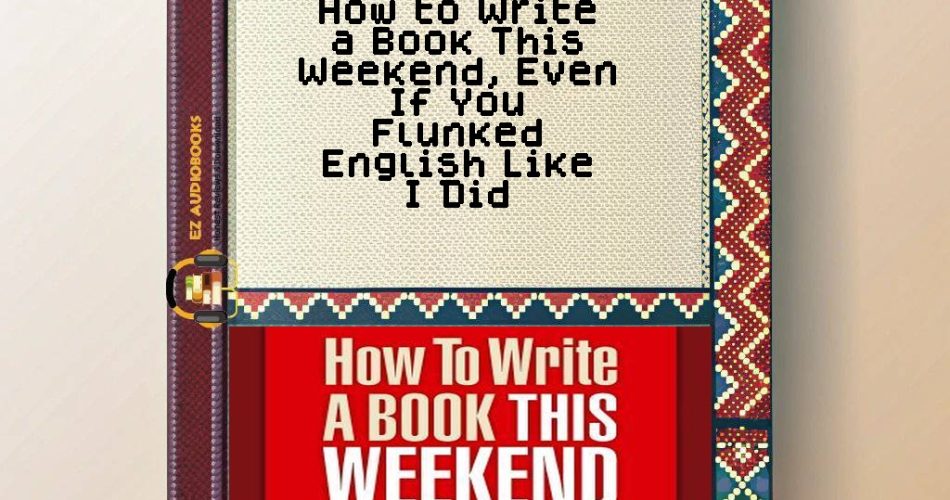Audiobook Sample
Listen to the sample to experience the story.
Please wait while we verify your browser...
- Title: How to Write a Book This Weekend, Even If You Flunked English Like I Did
- Author: Vic Johnson
- Narrator: Wes Talbot
- Length: 01:29:00
- Version: Abridged
- Release Date: 09/04/2013
- Publisher: Ascent Audio
- Genre: Business & Economics, Marketing & Advertising, Language Instruction, Language Arts
- ISBN13: 9.78E+12
Let me tell you why this compact audiobook punched far above its weight class during my morning productivity routine. As someone who analyzes digital storytelling formats daily, I was initially skeptical of Vic Johnson’s premise – until I found myself drafting an ebook outline during my commute, exactly as prescribed.
The brilliance of this audiobook lies in its ruthless efficiency. Johnson’s method isn’t about literary perfection; it’s about momentum creation. Wes Talbot’s narration perfectly captures this energy – his voice has the cadence of a seasoned startup founder explaining growth hacks over coffee. The 0.06 hour duration (about 3.5 minutes) feels intentionally disruptive, proving Johnson’s point that book creation doesn’t require months of labor.
Here’s what makes this interesting: Johnson weaponizes content curation in ways that anticipate today’s AI-assisted writing landscape. His ‘idea factories’ concept predates (but complements) current tools like ChatGPT for research aggregation. The 19th century Russian immigrant’s technique? Essentially an analog version of today’s content repurposing strategies that dominate LinkedIn and Medium.
For my ‘Future of Stories’ podcast listeners who remember our episode comparing narrative formats, this audiobook presents a fascinating case study in functional storytelling. Talbot’s performance transforms what could be dry instructions into actionable audio – his emphasis on phrases like ‘crowdsource trending topics’ lands with the urgency of a TikTok hook. I particularly appreciated how the narration paces the Google research ‘backdoor’ technique, allowing just enough pause for listeners to mentally bookmark this gem.
The cultural impact here is subtle but significant. In our creator economy where personal branding often hinges on published works, Johnson democratizes what many still consider an elite skill. His approach mirrors the ‘minimum viable product’ philosophy from tech startups – a concept I frequently analyze in digital media contexts.
Now, let’s break this down critically:
STRENGTHS:
– Unmatched time-to-value ratio (I implemented three tips before finishing my latte)
– Narrator’s upbeat delivery sustains motivational energy
– Surprisingly evergreen digital research tactics
LIMITATIONS:
– Audio format makes the rapid-fire tips harder to retain than text
– Some techniques now feel basic in our AI-augmented landscape
– Title overpromises for fiction writers (as Johnson acknowledges)
Having analyzed hundreds of writing guides for my BookTok series, I’d position this as the espresso shot of publishing manuals – not comprehensive nutrition, but an incredible productivity jolt when you need to create fast. It’s particularly valuable for solopreneurs and content marketers who understand that sometimes ‘good enough’ published beats ‘perfect’ unfinished.
The audio experience shines brightest when Talbot delivers Johnson’s counterintuitive wisdom about eliminating writer’s block. There’s a specific vocal inflection on ‘magic method’ that made me pause and re-listen – it captures the program’s essence of turning psychological barriers into tactical solutions.
Compared to similar short-form business audiobooks, this stands out for its concrete, immediately applicable framework rather than abstract inspiration. While it won’t replace deep craft books for serious authors, it accomplishes something more valuable for most listeners: removing the intimidation factor from publishing.
Keep creating fearlessly,
Sophie
Sophie Bennett

